Cargando...
Recursos educativos
-
Nivel educativo
-
Competencias
-
Tipología
-
Idioma
-
Tipo de medio
-
Tipo de actividad
-
Destinatarios
-
Tipo de audiencia
-
Creador
Lo más buscado
- Dibujos simétricos
- Letras M
- El Alto Imperio romano
- Sonidos de animales
- Aprender a educar
- Actividades de repaso
- Dictados para ortografía
- Cuentos para dormir
- Actividades plásticas
- Ejercicios resueltos
- Letras L
- La península Ibérica en la Antigüedad
- Cómic para rellenar
- Los ríos
- Dibujos de Halloween para recortar
-

Answer the questions
EduBook Organización
- 2507 visitas
Answer the questions: Look at the photos. Which types of jobs can you see? Can you think of a job that involves producing food? And one that involves helping people? What job do you want to do when you grow up?
-
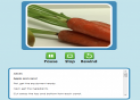
Cooking videos
Tiching explorer Organización
- 1 lo usan
- 5172 visitas
The website "Food a fact of life" provides a collection of cooking videos. They are cooking recipes. We can see how to prepare lots of different plates. Each video contains the ingredient list…
-
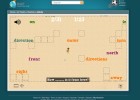
Video games: reading
Tiching explorer Organización
- 1 lo usan
- 4348 visitas
This page collects a series of games (sound match, blast off, fill-ins) to practice reading vocabulary about different subjects: directions and prepositions, time, jobs, art, emotions, shapes and…
-
True/false. Multicellular organisms
EduBook Organización
- 2475 visitas
Decide if the following statements are true or false: Living things that are made up of many different cells are called multicellular organisms. ➝ The cells in these organisms feed themselves and…
-
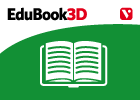
End-of-unit evaluation - Animals
EduBook Organización
- 2479 visitas
Animals belong to the largest and most diverse group of living things. There are over two million different animal species. Animals get the energy they need by eating food. They can move from place to…
-
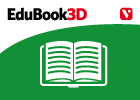
End-of-unit activities - Animals
EduBook Organización
- 2467 visitas
Animals belong to the largest and most diverse group of living things. There are over two million different animal species. Animals get the energy they need by eating food. They can move from place to…
-
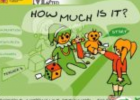
How much is it?
INTEF Organización
- 1 lo usan
- 4229 visitas
In this unit we learn about shopping and prices. We practice grammar (demonstratives, articles a/the, countable and uncountable nouns, how much/how many, irregular plurals) and vocabulary (food and…
-
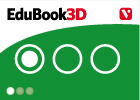
Choose. The 18th century economic growth
EduBook Organización
- 2451 visitas
Match each definition with the correct concept: Periods of food shortage and a rise in prices. Societies based on an agricultural economy, absolute monarchy and the social hierarchy of estates. Maritime…
-
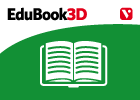
Summaries - Nature and society: harmony, crisis and impact
EduBook Organización
- 2450 visitas
1. The relationship between nature and society Today's rate of exploitation of natural resources is not sustainable. Also, resources used for energy, food and products need to be transformed. This…
-
True/false. Main characteristics of the Neolithic period
EduBook Organización
- 2436 visitas
Decide if the following statements are true or false: The Neolithic period began in the South of Europe. ➝ The advances made in the Neolithic period were the cultivation of land and the domestication…
Te estamos redirigiendo a la ficha del libro...













